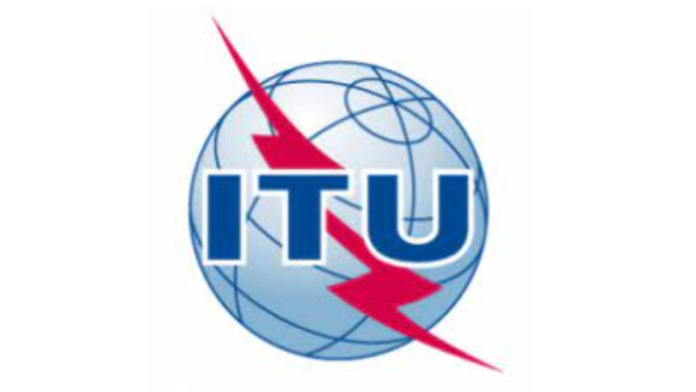The International Telecommunications Union (ITU) yesterday appealed to the global community for collective action and collaboration against submarine cable disruptions and cuts that could slow down the growth and development of the digital economy in the world.
The Secretary General of ITU, Doreen Bogdan-Martin, made the remarks at the Transcorp Hotel Abuja during the opening ceremony of the ITU International Submarine Cable Resilience Summit hosted by Nigeria for the first time.
She said at the moment, the digital economy accounted for the greater part of the world’s Gross Domestic Product (GDP), and is expected to peak at 16.5 trillion dollars by 2028.
The ITU Secretary-General said global attention should be focused on measures that would sustain the spate of rapid developments in the digital economy sector with submarine cable connectivity accounting for 95 per cent of its backbone.
“The past two decades have seen a vast digital shift, with new socio-economic opportunities as well as challenges. Since the 2005 World Summit on the increasing society, the number of internet users back then in 2005 stood at one billion.
“At the end of last year, we had 5.5 billion internet users. And today, the global digital economy is growing faster than global GDP and is expected to reach 16.5 trillion US dollars by 2028.
“Over the next decade, some estimate that more than two-thirds of the new value creation could come from digitally-enabled companies,” the ITU boss said.
The summit, which is being attended by more than 300 delegates from the 194 ITU-member countries, had the Minister of Communications, Innovations and Digital Economy, Dr Bosun Tijani, and the Executive Vice Chairman of the Nigerian Communications Commission (NCC), Dr Aminu Wada Maida, in attendance.
Others in attendance were the Permanent Secretary of the Ministry of Communications, Innovations and Digital Economy, Engr Faruk Yabo; the Director General of NITDA, Malam Kashifu Inuwa; the National Commissioner of NDPC, Dr Vincent Olatunji, and the Managing Director of NigComSat, Mrs Jane Egerton-Idehen.
“As our economies and digital innovations grow, and as we seek to bring meaningful connectivity to all, so does our reliance on digital infrastructure like submarine cables. This global undersea network is emblematic of the innovation and the investment required to connect the world meaningfully,” Bogdan-Martin said.
She lamented that despite the resilience of undersea cables, about 200 disruptions are witnessed yearly, while fixing them across continents and countries is difficult and slow.
She noted that the global economy always felt the impact of submarine cable cuts and disruptions, stressing that “submarine cables are put in place by an interplay of technology, business, and policy that have to be considered holistically.”
“That’s why this summit includes a diversity of stakeholders that are essential to this conversation,” the ITU boss added.
Bogdan-Martin, who commended Nigeria for hosting the event, called on the ITU Advisory Body, the academic and other stakeholders to work towards a lasting solution for the challenges of undersea cable cuts and disruptions across the globe.
The co-chair of the Advisory Board for ITU, Prof Sandra Maximiano, underscored the importance of the International Advisory Board for Submarine Cable Business and Economy at the summit, saying that positive developments have been witnessed in the industry.
“It is no coincidence that we are meeting here in Abuja today, given that several cable cuts occurred in March last year affecting multiple countries in West Africa, including Nigeria, Cote d’Ivoire, and Senegal.
“This incident highlighted the critical importance of subsea cable businesses in this region, with some estimates indicating that over 70 million customers were affected.
“While Nigeria is served by several submarine cable systems, many of which also land in my home country, Portugal, including Maniwari, the Africa coast to Europe, Etihanu, and to Africa, other Western African countries are served by only a single submarine cable,” Maximiano said.
The Minister of Communications, Innovations and Digital Economy, Dr Bosun Tijani, in his remarks welcomed the ITU delegates to Nigeria and urged participants to take advantage of the hospitality of the country.
Speaking on submarine cables issues, Dr Tijani said: “This is not just a technical or industry-specific challenge. It is a global imperative that affects the financial market, trade, education, health systems, and even governance.
“Under the leadership of President Bola Tinubu, Nigeria is committed to strengthening its digital infrastructure and advancing policies that support connectivity, innovation, and economic growth.
“We are taking decisive steps as a nation to recognise and protect the government’s infrastructure as critical national infrastructure, aligning with our broader efforts to enhance digital resilience across all sectors.
“As a government, we are also deeply interested in leveraging digital property infrastructure, promoting global access, and expanding broadband penetration, ensuring that connectivity remains a catalyst for economic transformation and revolution.
“The outcomes of this summit will not only influence policy and investment decisions, but also serve as the foundation for global cooperation and long-term resilience. “
(Daily Trust)



